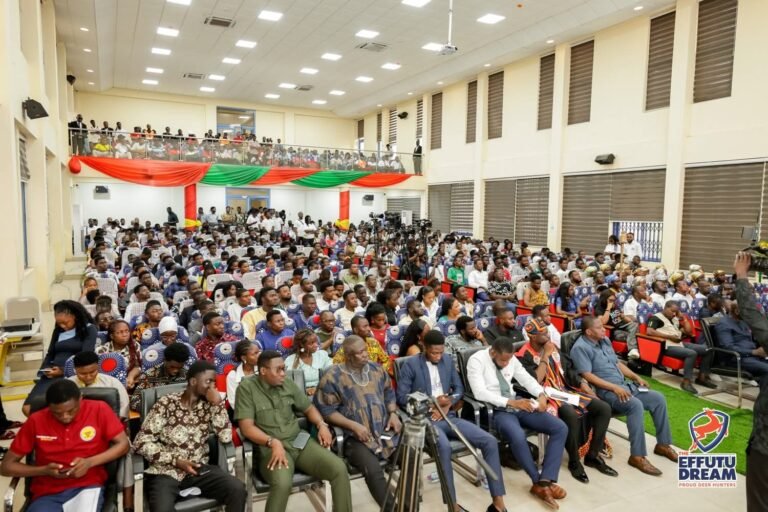
Global Media Foundation (GLOMEF), an anti-corruption and media advocacy organization, will soon roll-out a project, dubbed ‘Ghana Non-Communicable Diseases Prevention Project’, as part of efforts to reduce mortality from non-communicable diseases. The project will also promote mental health care in Ghana and empower young people to live healthier lifestyles, while simultaneously bolstering the health services available to support them.
The project will also help to achieve Sustainable Development Goal Three by 2030, which is to reduce by one third premature mortality from non-communicable diseases through prevention and treatment, and promote mental health and well-being.
Briefing the media in Sunyani about the project, the founder and Chief Executive Officer of GLOMEF, Raphael Godlove Ahenu, noted that preventing Non-Communicable Diseases (NCDs) requires a multi-dimensional approach, hence the need for government and civil society organisations (CSOs) to collaborate on new health policies that improve the prevention, detection, management and treatment of NCDs in Ghana.
He said the project would be engaging peers, family members, and communities to encourage healthy lifestyles through health education and community-based screenings.
WHO statistics
According to him, the World Health Organization (WHO) has indicated that NCDs account for the death of some 41 million people each year, equivalent to 71% of all global deaths.
“Each year, more than 15 million people, aged between 30 and 69, die from NCDs out of which 85% of these ‘premature’ deaths occur in low-and middle-income countries,” he added.
In Ghana, he revealed, NCDs kill an estimated 86,200 persons each year with 55.5% of them, aged less than 70 years, with 58% of the figure being males.
Mr. Ahenu mentioned unhealthy diets, physical inactivity, tobacco use, and alcohol misuse as the main risk factors contributing to the increasing cases of NCDs. He added that most of these diseases are preventable as they eventually progress in early life due to lifestyle aspect
He mentioned poor hygiene and sanitation, inadequate financial health investments, limited workforce and facilities as the challenges facing Ghana healthcare system.
Health screening
Touching on the importance of the screening, he noted that health screenings are important part of maintaining good health, especially as people get older.
Mr. Ahenu was of the view that many deaths could be prevented if people got simple, regular health screenings as recommended by doctors, adding that screenings can detect problems early, when chances for successful treatment are greatest.
He therefore asked Ghanaians to make it a habit to undergo regular health screening or check-ups, stressing that health screening helps to find out if one has a particular disease or condition.
He said early detection, followed by treatment and good control of the condition, can result in better treatment outcomes, and lower the risk of serious complications.
He announced that the GNCDP project would be organising a series of health screening exercises across the country, especially in remote and hard-to-reach communities who have no access to quality health care delivery.
Mr. Ahenu mentioned funding as one of the major challenges facing the Foundation, and appealed to corporate institutions and philanthropists to support the Ghana NCDs prevention project




